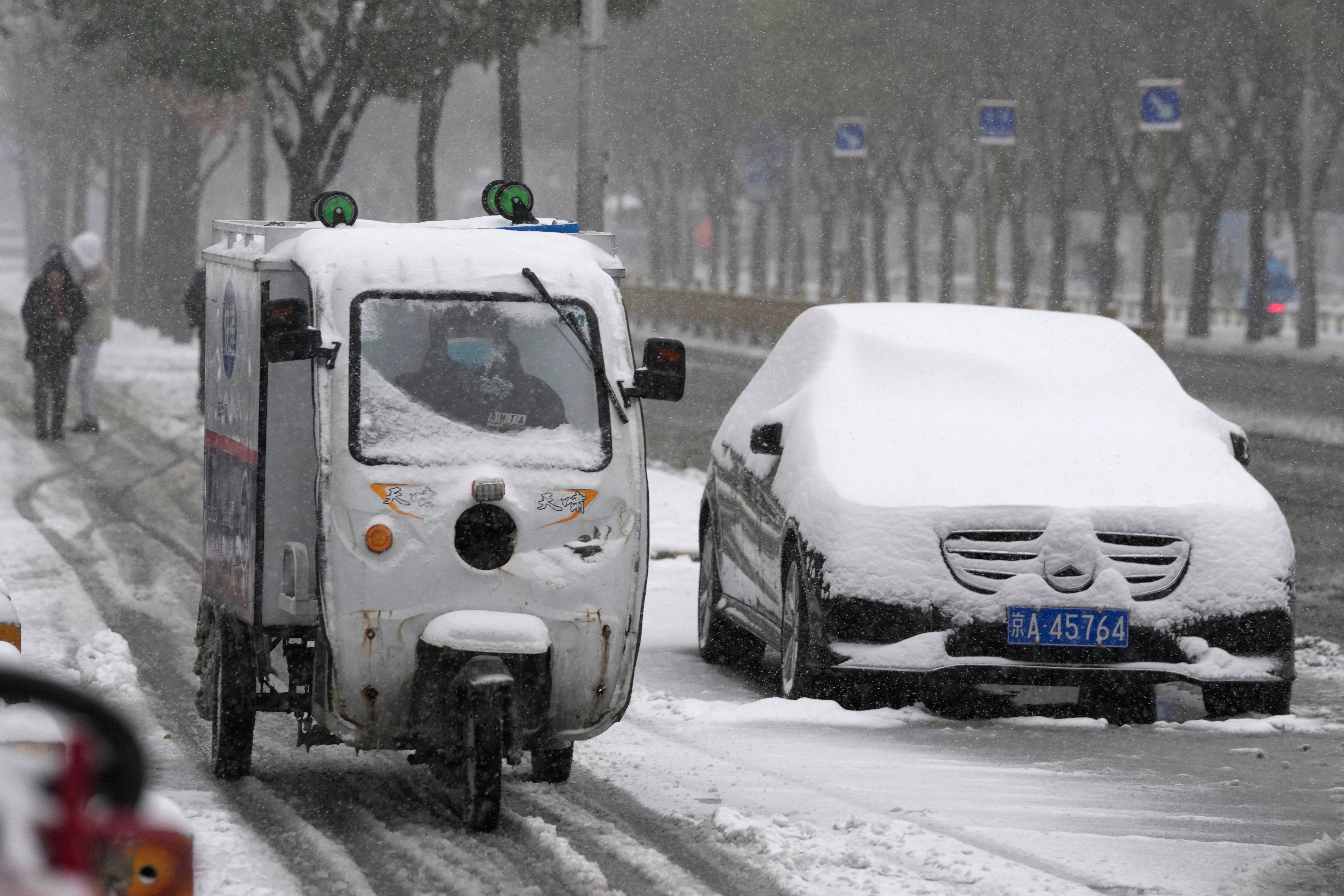Chaotic scenes as northeast China hit by record snowfall
Heavy snowfall has caused flight cancellations and significant disruption, and could worsen a national power supply crisis

Parts of China’s northeast region are facing the worst snowfall in 116 years as a result of unseasonably early winter storms, resulting in significant disruption to daily life.
The heavy snowfall has caused flight cancellations, road closures, disruption to public transport and a dramatic drop in temperatures this week since the cold wave began on Sunday. Concerns over power cuts have also been exacerbated by the worsening weather, with the country already facing a power supply crunch.
There has been significant early snowfall in the capital Beijing, while the province of Liaoning appears to be the worst affected — an average snow depth of 51cm (20 inches) was recorded in the Liaoning city of Anshan, which is the highest since 1905, state news agency Xinhua reported.
Major expressway toll stations were shut on Tuesday in Liaoning province, causing heavy traffic. Train and bus stations were also closed, except those in the cities of Dalian and Dandong, according to Reuters news agency.
China’s State Grid Corp also warned on Sunday that they are maintaining a “tight balance” between power supply and demand through the winter as the temperature goes down.
Temperatures plunged by as much as 14C in some regions between Sunday and Tuesday, with several provincial meteorological departments issuing red alerts, the most severe warnings in a four-tier system, for more snowstorms into the end of the week.
The authorities have urged markets to lower the price of essentials like some vegetables while increasing their supplies.
Chinese experts have put the early cold snap down to the La Nina climate phenomenon, which has led to forecasts of bitter winters this year across the northern hemisphere. Zhao Huiqiang, an official at the China Meteorological Administration (CMA), was quoted by state media as saying the country should expect frequent cold waves throughout the season.
The Global Times, a Chinese state-run newspaper, described it as the most widespread early cold snap in a decade, saying it affected 1.18 billion people and 90 per cent of the regions across the country, including the southernmost tropical island of Hainan, where temperatures dropped at least 8 degrees.
One person died and more than 5,600 were affected after a heavy snowstorm in China’s northern Inner Mongolia region, state media reported. The impact was also seen in Heibei province, with Beijing seeing temperature drop to a 10-year low and early snowfall beginning on 6 November — 23 days earlier than average, according to the Beijing Meteorological Bureau.
Orders have been given for coal imports to be increased, it was reported, as energy demand increases with people staying home and needing to warm houses.
This comes after a long phase of power disruptions in China beginning in May and the country’s efforts to increase coal supply despite its climate action goals. The unusual weather across China is now threatening to make the power supply situation worse for the coal-dependent country.
Additional reporting by Reuters
Subscribe to Independent Premium to bookmark this article
Want to bookmark your favourite articles and stories to read or reference later? Start your Independent Premium subscription today.

Join our commenting forum
Join thought-provoking conversations, follow other Independent readers and see their replies